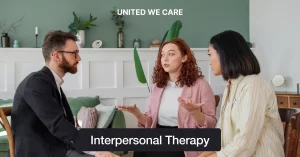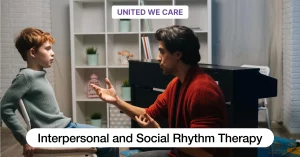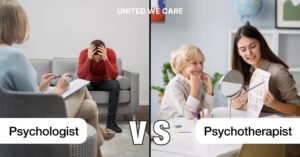What is ADHD?
[1] ADHD, or attention-deficit hyperactivity disorder, affects several children. It is a chronic condition and might continue into adulthood. ADHD includes persistent symptoms such as hyperactivity, impulsive behaviour, and problem-solving attention. Children who have ADHD also display poor performance in academics, low self-esteem, low confidence, and disturbed relationships. In some people, the symptoms of ADHD might lessen in severity as they age, but in others, the symptoms never disappear entirely.There is no cure for ADHD, but treatment can help ease the symptoms. The treatment of ADHD includes medicines and therapy. If the condition is diagnosed early, it can help reduce the severity of the symptoms. If you notice any symptoms of ADHD in your child, you should see your family doctor or paediatrician as soon as possible. Your doctor may refer your child to a psychiatrist, psychologist, or pediatric neurologist.
Symptoms of ADHD
The symptoms of ADHD start to show before 12 years of age, and in some children, symptoms might begin as early as when the child is three years old. [3] The types of ADHD and symptoms vary according to the child’s type. The three types of ADHD are predominantly inattentiveness, hyperactive/impulsive behaviour, and combined ADHD.
The symptoms of inattentiveness are:
- The child makes careless mistakes or cannot pay attention to small details.
- They need to stay focused on play or tasks.
- They might only listen if spoken to indirectly.
- They need help organizing activities or tasks.
- They need help with following instructions and finishing schoolwork.
- They dislike or avoid tasks such as homework.
- They become easily distracted while doing chores.
- They cannot keep track of personal items and assignments.
- They need to remember to do their daily chores.
The symptoms of hyperactivity or impulsivity are:
- The child has difficulty staying in one place or sitting in one place in the classroom.
- They have difficulty doing activities quietly.
- They are incredibly talkative.
- They interrupt the teacher by blurting out answers.
- They are in constant motion.
- They fidget with their hands and feet or squirm in the chair.
Combined type ADHD is characterized by inattentive and hyperactive-impulsive symptoms persistently manifesting in a child’s behaviour.
Causes of ADHD
ADHD is a neurological disorder that affects how a child’s brain processes information [3]. As a result, it adversely affects the child’s behaviour. Although the exact causes of ADHD are unknown, researchers believe that the central nervous system, genetics, and nutrition play significant roles in causing ADHD.
- Biological and genetic factors: [2] Researchers have found that ADHD can run in the family, affecting the family members of people with ADHD. Many experts believe that the gene DRD4 plays a predominant role in causing ADHD, and more than one gene might be responsible for causing ADHD.
- Environmental factors: Environmental factors that might cause ADHD in children include premature birth, low birth weight, brain injury, and consumption of alcohol or tobacco during pregnancy.
- Psychological factors: Psychological factors that might cause ADHD are maternal depression, poverty, unsupportive and irresponsible parents, a disturbing environment in the household, and careless caregivers.
How is ADHD diagnosed?
There is no typical test for ADHD, but specific examinations can help diagnose the condition:
- Medical examination: Certain medical tests are performed to rule out other causes of the symptoms.
- Interviews: Your child’s family members, caregivers, teachers, or coaches are interviewed to understand the child better.
- ADHD rating scales: Your psychologist will collect ADHD rating scales to evaluate your child’s behaviour.
- Gathering information: Your child’s psychologist will collect information about your child’s family history, medical issues, and school records to assess the child’s behaviour.
- ADHD criteria from DSM-5: Your child’s psychologist will check your child’s ADHD criteria from the Diagnostic & Statistical Manual of Mental Disorders (DSM-5).
Treatment for ADHD
The treatment of ADHD includes medicines, counselling, behavioural therapy, and education services. The treatment options can help relieve the symptoms of ADHD.
Medications: Stimulant drugs such as amphetamines and methylphenidates help to balance the levels of neurotransmitters or brain chemicals. These medicines are also helpful in improving the symptoms of hyperactivity.
Psychotherapy: Children who have ADHD also benefit from therapy. Therapy includes behavioural therapy, parenting skills training, family training, social skills training, and psychotherapy. Psychotherapy is especially beneficial in treating symptoms of ADHD, and it involves talking to the child about issues disturbing them and finding ways to cope with the symptoms.
Resources for parents and children with ADHD
Living with a child who has ADHD can be frustrating at times. But as responsible parents, you must adapt to various resources to help yourself and the child. You can channel your child’s energy in positive directions and bring peace to the family. Children who have ADHD will have problems with their executive functioning, which means they cannot organize and complete their tasks. Therefore, as parents, you must be the executive and guide your child until your child acquires his executive skills. mustTo do all these things, you must stay positive and healthy. You must remain calm and focused and understand your child’s disorder. From United We Care, you can seek professional advice if you find it challenging to deal with your child’s ADHD. To read more about therapies and coping methods, visit the following links:
References
- Cleveland Clinic, “Attention Deficit Disorder (ADHD) | Cleveland Clinic,” Cleveland Clinic, 2017. https://my.clevelandclinic.org/health/diseases/4784-attention-deficithyperactivity-disorder-adhd
- A. Thapar, M. Cooper, R. Jefferies, and E. Stergiakouli, “What causes attention deficit hyperactivity disorder?,” Archives of Disease in Childhood, vol. 97, no. 3, pp. 260–265, Sep. 2011, doi: https://doi.org/10.1136/archdischild-2011-300482.
- Mayo Clinic, “Attention-deficit/hyperactivity disorder (ADHD) in children – Symptoms and causes,” Mayo Clinic, Jun. 25, 2019. https://www.mayoclinic.org/diseases-conditions/adhd/symptoms-causes/syc-20350889





